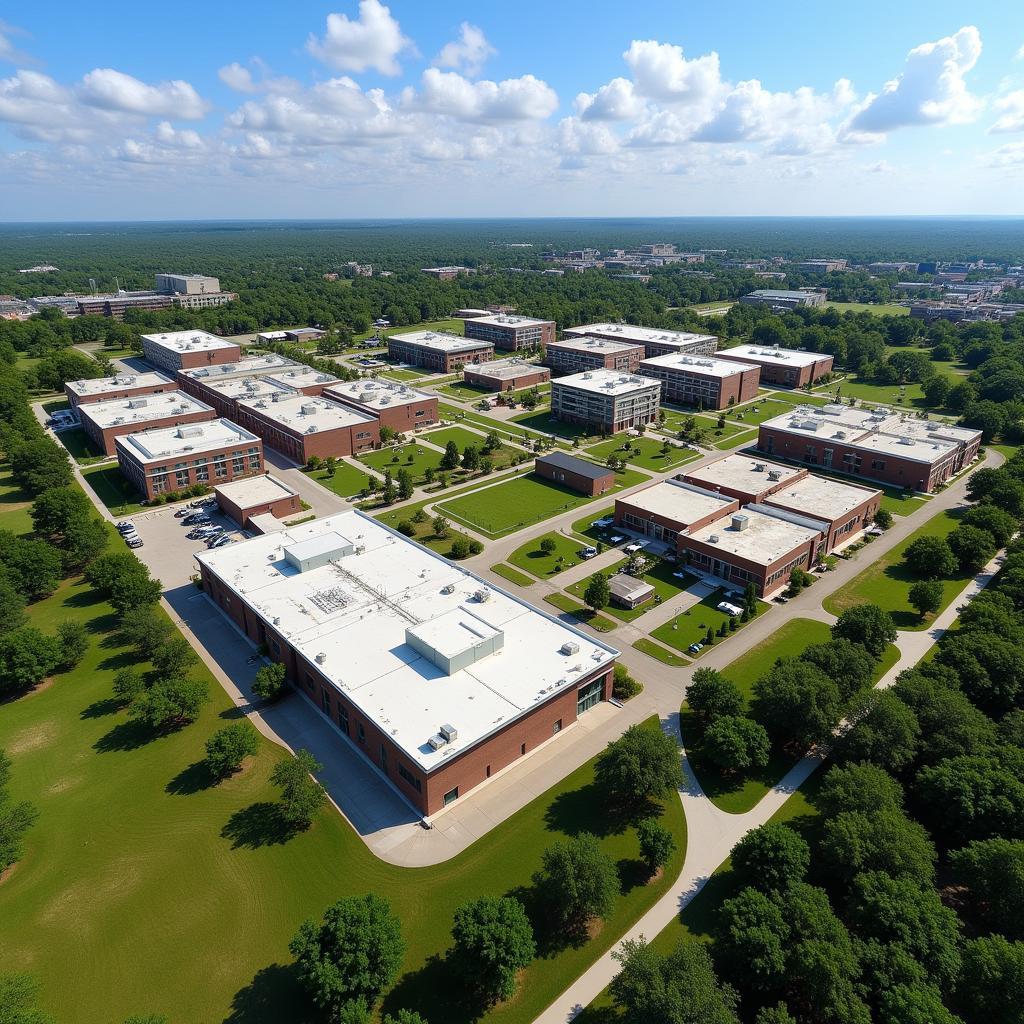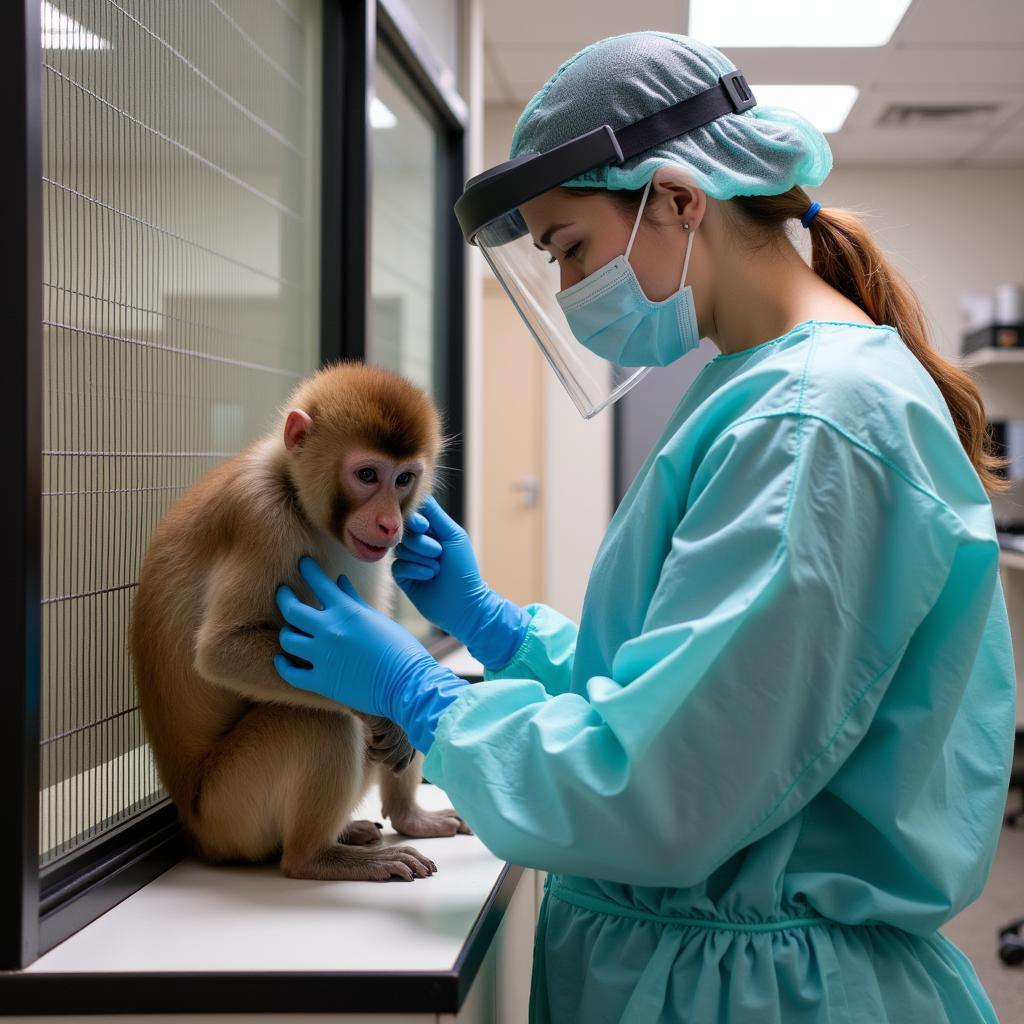The Southwest Foundation For Biomedical Research (SFBR), now known as Texas Biomedical Research Institute, has long been a beacon of scientific exploration, pushing the boundaries of our understanding of human health and disease. While their work centers around vital medical research, the institute’s long history and groundbreaking discoveries have also sparked intrigue and speculation, intertwining their narrative with whispers of the paranormal. This exploration delves into the depths of the Southwest Foundation for Biomedical Research, separating fact from fiction and examining the blurred lines between scientific pursuit and the unexplained.
 Aerial view of the Southwest Foundation for Biomedical Research campus
Aerial view of the Southwest Foundation for Biomedical Research campus
A Legacy of Scientific Breakthroughs
Established in 1941, the SFBR has earned global recognition for its contributions to biomedical research. Their team of dedicated scientists has been at the forefront of combating infectious diseases, pioneering advancements in areas like virology, immunology, and primate research. The institute’s dedication to improving global health is undeniable, with their research paving the way for vaccines, treatments, and a deeper understanding of complex diseases.
However, the very nature of their work, often dealing with deadly viruses and pushing ethical boundaries in the name of scientific progress, has led to a shadow of mystery surrounding the institute. Rumors and speculation have circulated for decades, fueled by the secrecy inherent in cutting-edge research and the public’s fascination with the unknown.
The Simian Speculations: Truth and Exaggeration
One of the most prevalent rumors surrounding the SFBR involves their primate research program. As one of the largest primate research centers in the world, the institute houses thousands of baboons, macaques, and chimpanzees. This, understandably, has drawn criticism from animal rights activists and fueled speculation about the true nature of their studies.
While the ethical implications of animal research are a subject of ongoing debate, it’s crucial to approach the topic with nuanced understanding.
 A scientist in protective gear interacts with a primate in a controlled laboratory setting.
A scientist in protective gear interacts with a primate in a controlled laboratory setting.
covid research studies often utilize animal models to test the efficacy and safety of new drugs and treatments before human trials can begin. Primates, due to their physiological similarities to humans, are often considered vital for specific research areas.
However, the SFBR’s commitment to transparency and adherence to strict ethical guidelines regarding animal welfare is well-documented. Their research protocols undergo rigorous review processes to ensure the humane treatment of all animals under their care.
Deconstructing the Myths: A Call for Critical Thinking
The internet is rife with sensationalized stories linking the SFBR to conspiracies involving government experiments, bioweapons, and even paranormal phenomena. While these narratives might make for captivating headlines, they often lack credible evidence and rely heavily on conjecture and fear-mongering.
It’s crucial to approach such claims with a healthy dose of skepticism. The allure of the unknown can be powerful, but it’s essential to ground our understanding in verified facts and rely on credible sources of information.
The Importance of Ethical Research and Public Discourse
The work conducted at the Southwest Foundation for Biomedical Research raises important questions about the balance between scientific progress and ethical considerations. Open dialogue and transparency are crucial to fostering public trust and ensuring that research is conducted responsibly and ethically.
eli lilly research, another prominent institution in biomedical research, has faced similar scrutiny and speculation over the years. This highlights the importance of ongoing conversations about the ethical implications of scientific advancements and the need for researchers to engage with the public and address concerns openly.
Conclusion: Embracing Science, Acknowledging the Unknown
The Southwest Foundation for Biomedical Research stands as a testament to human ingenuity and our relentless pursuit of knowledge. While their work might forever be intertwined with speculation and unanswered questions, their contributions to global health are undeniable.
As we continue to explore the boundaries of science and unravel the mysteries of the universe, it’s crucial to approach both the known and unknown with a balance of curiosity, critical thinking, and respect for ethical boundaries. The pursuit of knowledge should always be tempered by responsibility and a commitment to transparency, ensuring that the quest for answers doesn’t overshadow our humanity.